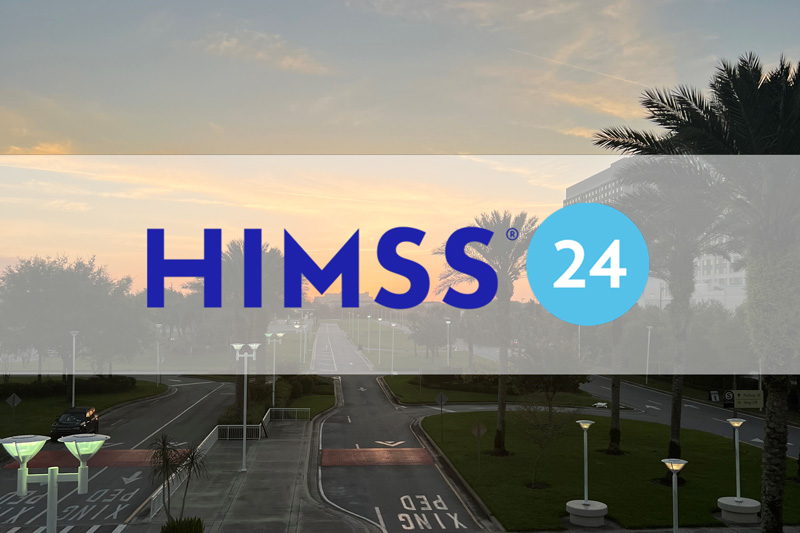In the rapidly growing world of healthcare, the volume of data is expanding at an unprecedented rate. From safeguarding HIPAA-protected patient information to managing sensitive financial data and tracking performance metrics, hospitals find themselves immersed in an ever-flowing stream of information.
Yet, merely having this data is not enough; what sets apart the industry leaders is their ability to extract meaningful insights from it. Hospitals that adopt a comprehensive data strategy can benefit from streamlined operations, financial success, and enhanced patient care. For hospitals looking to approach their data with a strategic lens, there are important considerations such as data governance and interoperability. The checklist below can be a valuable tool to help you evaluate the strength of your hospital’s data strategy.
✔️ Does your approach incorporate data from multiple sources?
The ecosystem of a hospital is inherently complex with each department functioning independently, yet reliant on others for success. Every department typically has its own set of measures and KPIs, monitoring different trends and outcomes across various divisions such as the emergency department, surgical departments, pharmacy, and labs. The clinical data in these departments might be housed in the EHR or other source systems. In addition to the bevy of clinical data flowing through the hospital, hospital administration also manages financial and operational metrics.
For your hospital to have a bullet-proof data approach, it is critical to integrate the disparate data from different systems throughout the hospital into a cohesive and comprehensive solution. Marrying clinical, operational, and financial data in meaningful ways is essential for your hospital to succeed with its analytics strategy.
✔️ Are you meeting interoperability standards?
Healthcare is becoming increasingly interconnected, and the seamless exchange of data is crucial for efficient collaboration across the industry. Hospitals with a robust analytics strategy ensure the consistency of data throughout the enterprise, facilitating its exchange between departments, providers, and other healthcare institutions.
Furthermore, interconnected data exchange allows healthcare organizations to leverage collective insights and best practices, fostering innovation and driving advancements in patient care. Interoperability enables a comprehensive understanding of patient needs and helps with timely, data-driven, clinical decision-making. Ensuring a smooth flow of data exchange is essential to the success of your hospital’s analytics approach.
✔️ Do you have a governance initiative?
According to the American Health Information Management Association, healthcare organizations face significant challenges in data governance due to the influx of information from EHRs and other digital systems. Data governance involves managing information throughout its lifecycle, ensuring adherence to quality and integrity standards across the organization. Establishing a framework for key performance indicators (KPIs) and business rules management keeps everyone on the same page across the organization. A top-notch analytics strategy includes robust governance that defines KPIs and measures, guaranteeing data integrity. This inspires confidence in your organization’s data and ensures your staff throughout the hospital are looking at the same data in the same way.
✔️ Are staff empowered to access and use data throughout the organization?
A strong analytics strategy ensures that data is accessible and usable by all users across the enterprise. From analysts to business line users to the C-suite, staff across the organization may have different familiarity with data, but everyone benefits from having consistent, timely access to it. Hospitals need a solution that gets important information to key stakeholders quickly and in a user-friendly format.
Implementing a self-service solution with visually appealing graphics and intuitive dashboards can enhance data literacy, even among individuals who may feel less comfortable with data. Increased access to data supports informed decision-making and improves operational efficiency, ultimately benefiting both patient outcomes and your hospital’s bottom line.
Conclusion
Amidst competing priorities, hospitals often struggle to develop and implement a robust data strategy. Furthermore, budget constraints and time limitations can impede the prioritization of data initiatives. However, as technology and EHRs advance, the abundance of data in hospitals will make strategic analytics initiatives necessary. Strategic use of data in hospitals has the potential to improve patient outcomes, drive financial success, and streamline operations. Employing this checklist can provide your hospital with a valuable starting point to optimize their data-driven approach.
- Why We’re Best in KLAS—Again! - February 7, 2024
- Building a Greener Healthcare System with Data Analytics - January 22, 2024
- Hospital Finance Predictions for 2024 - January 8, 2024






